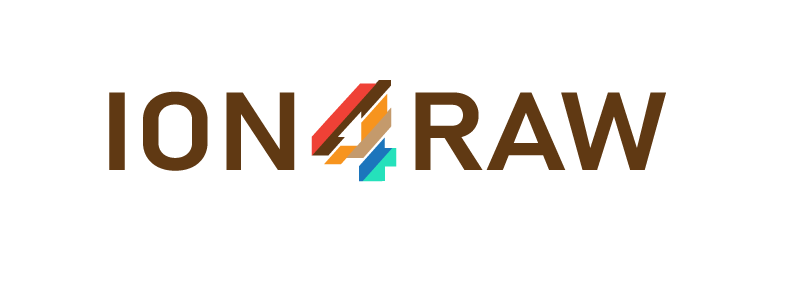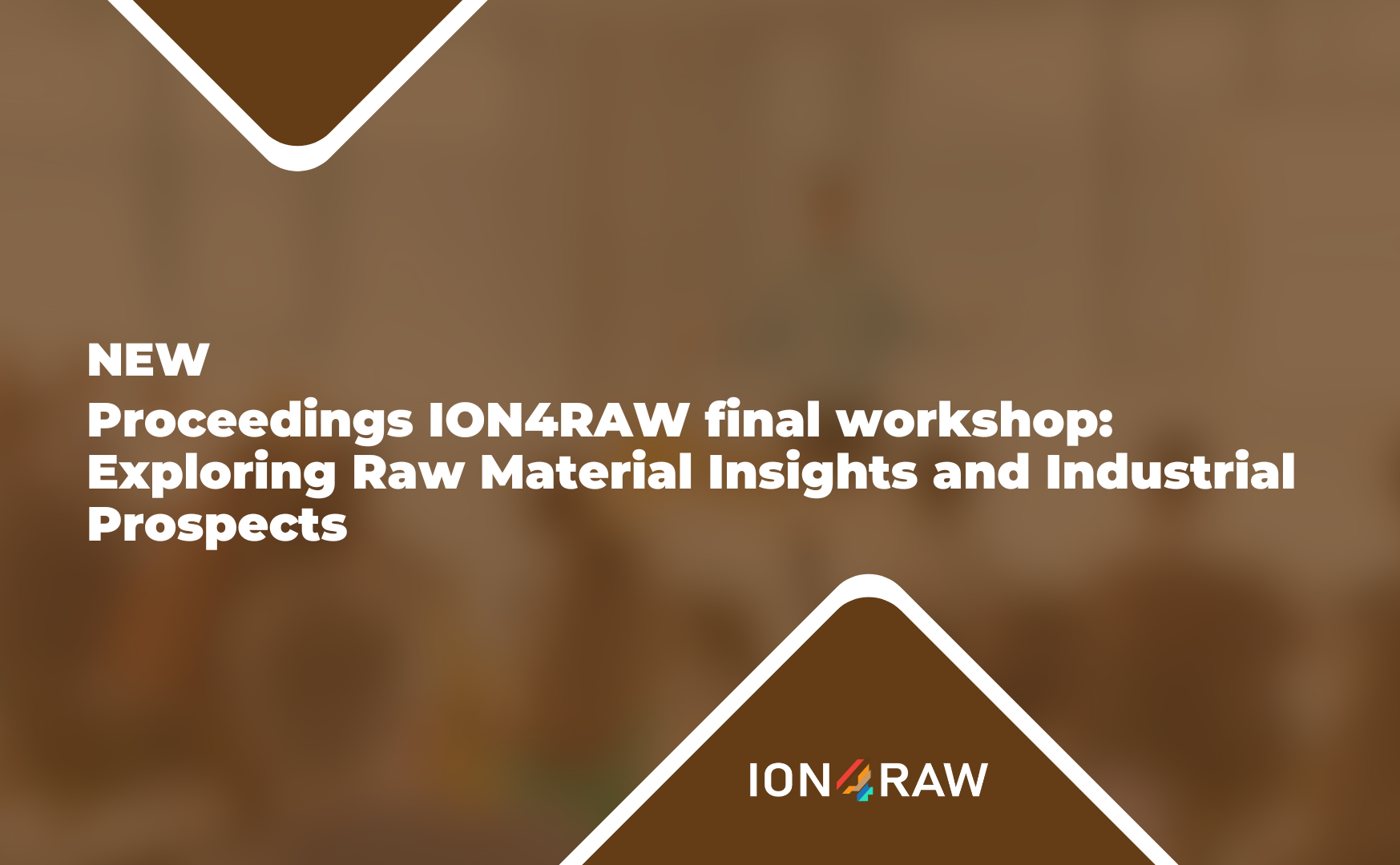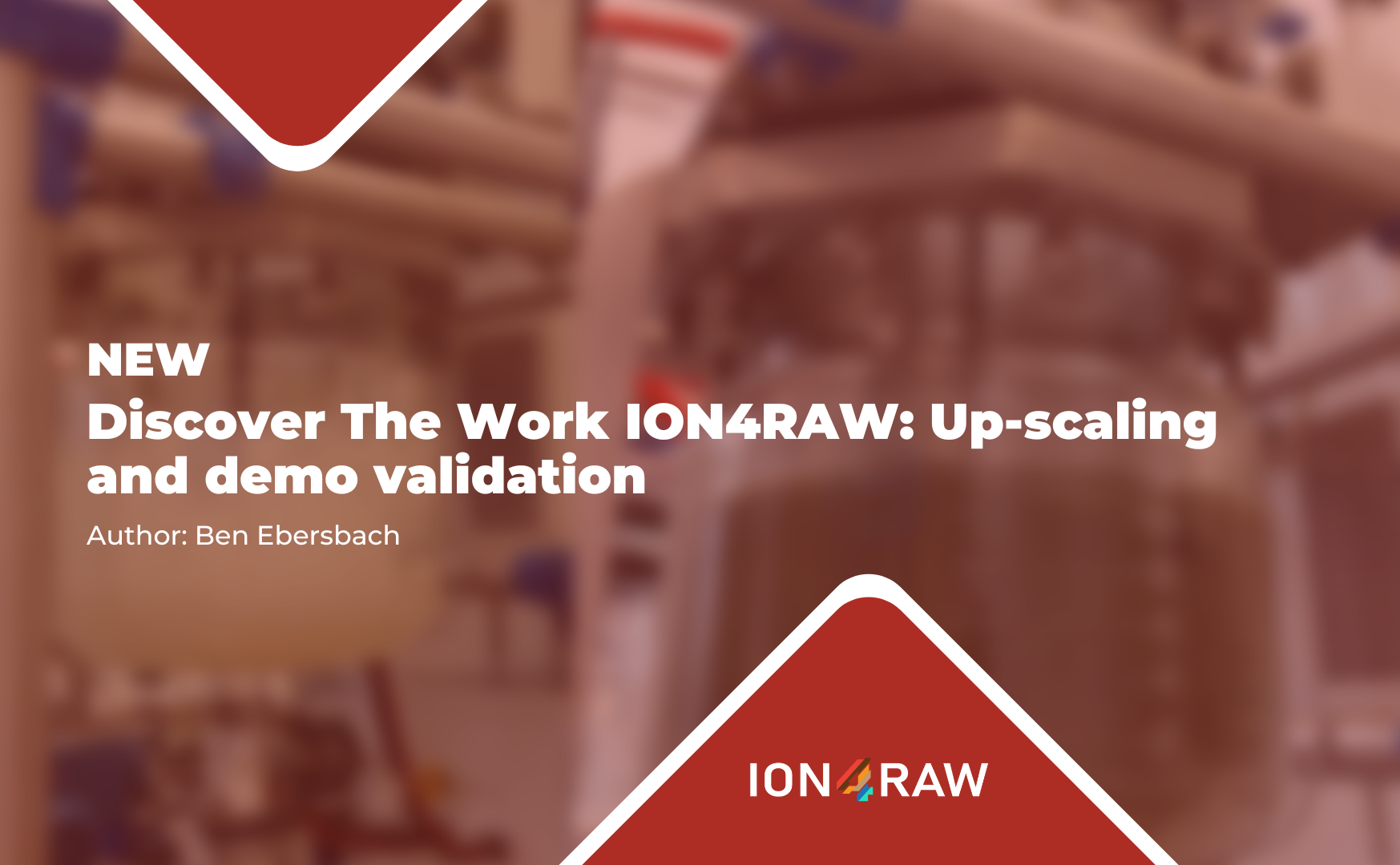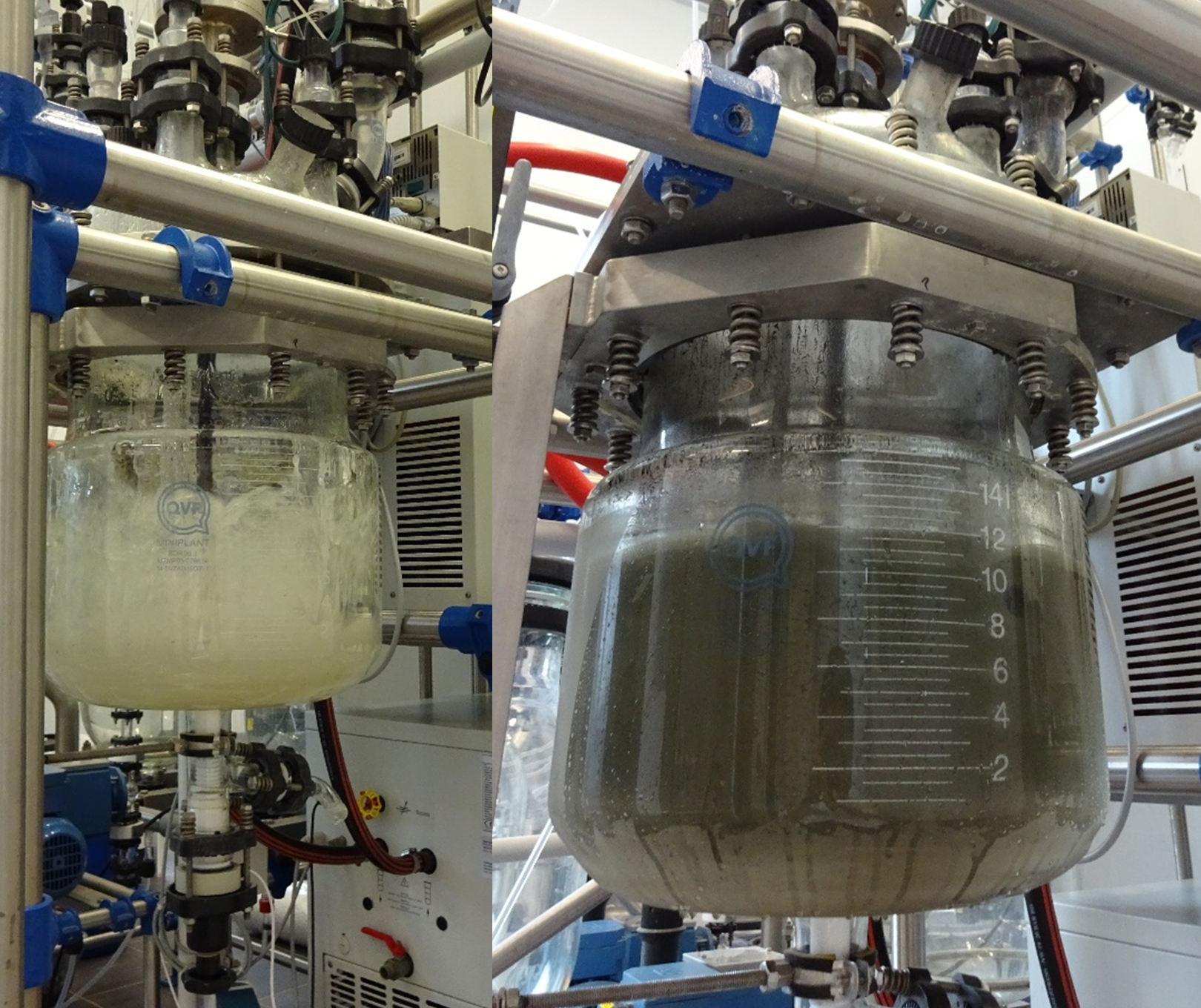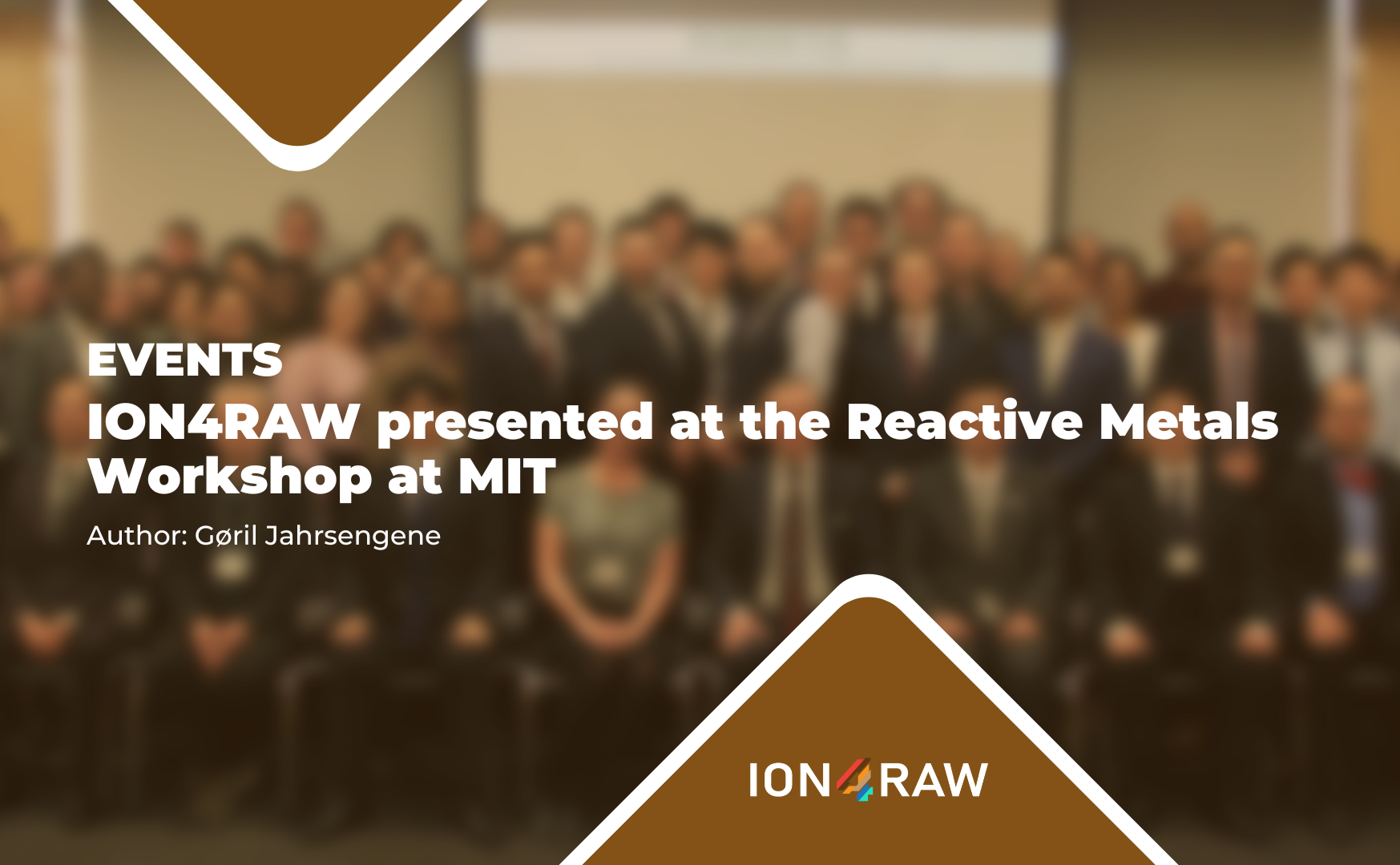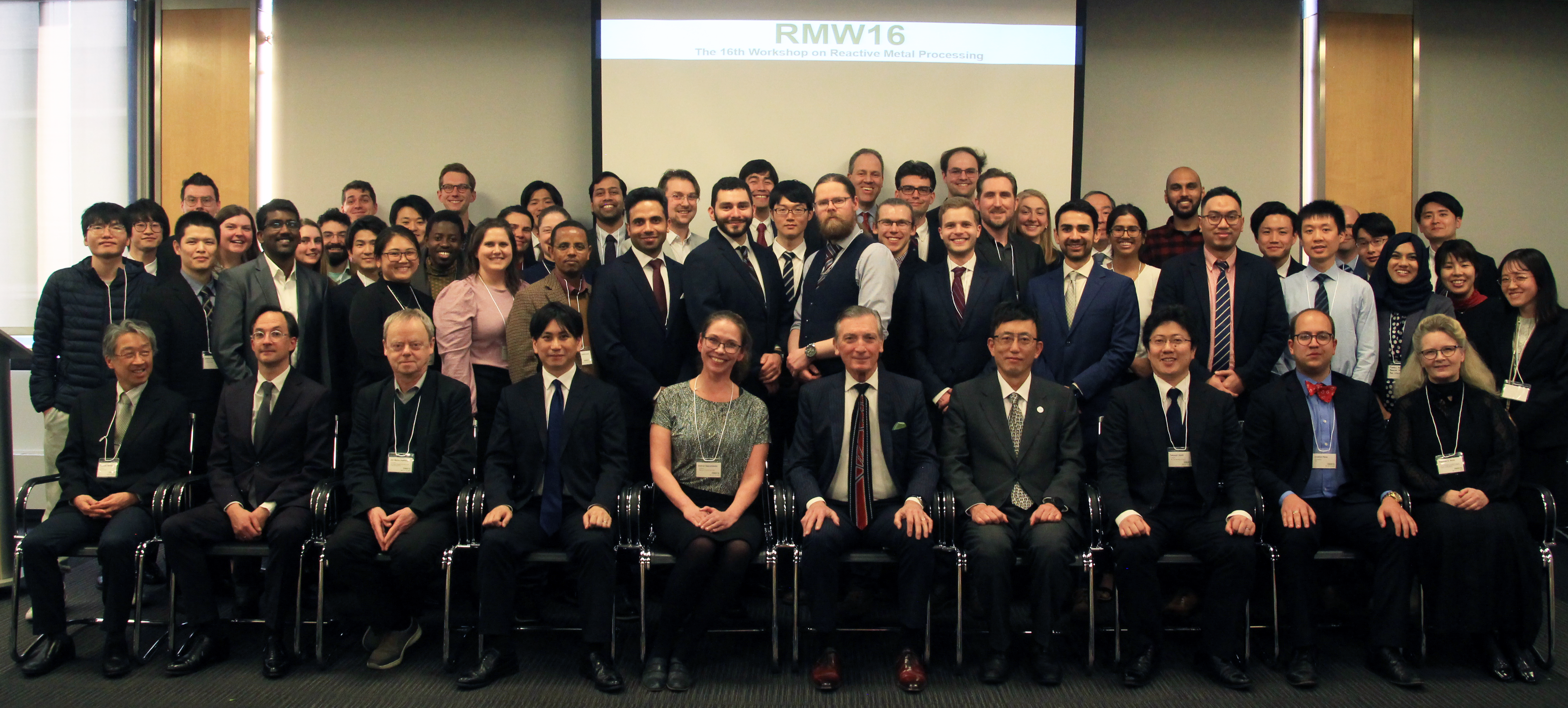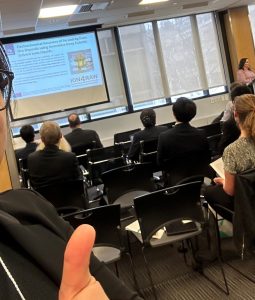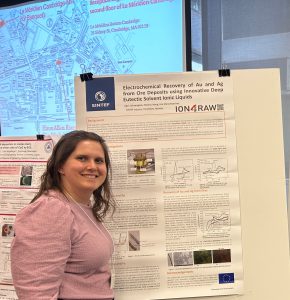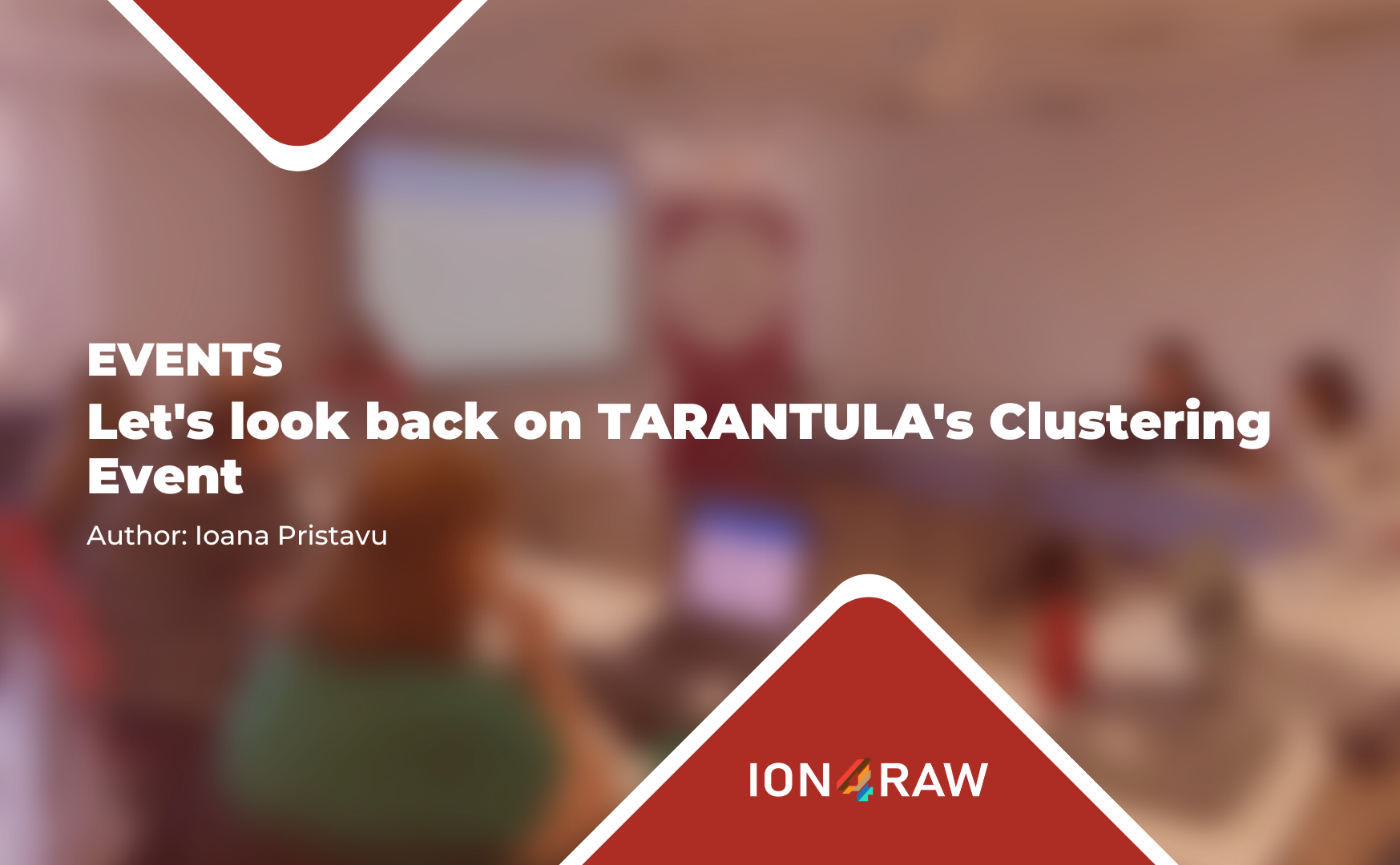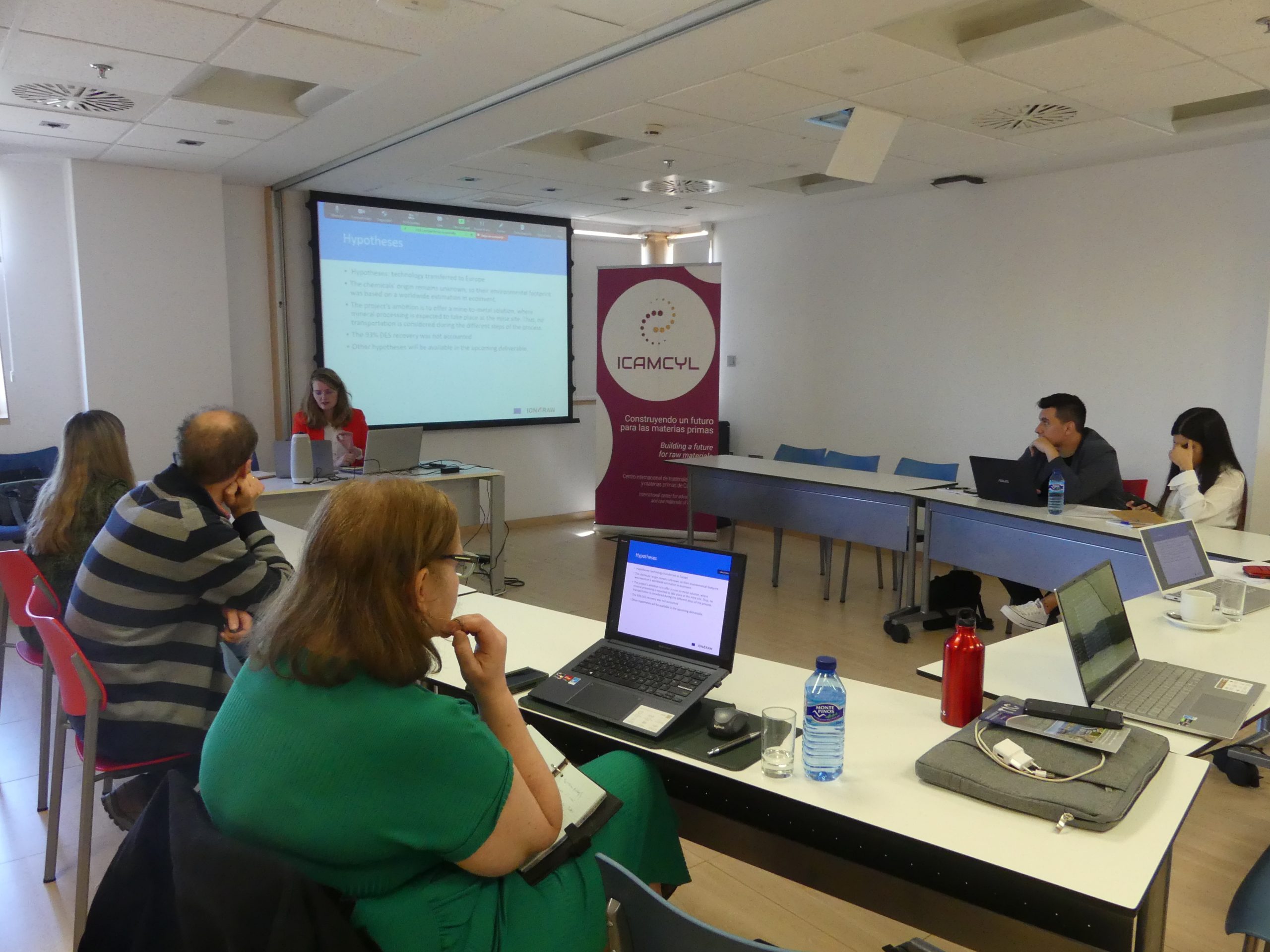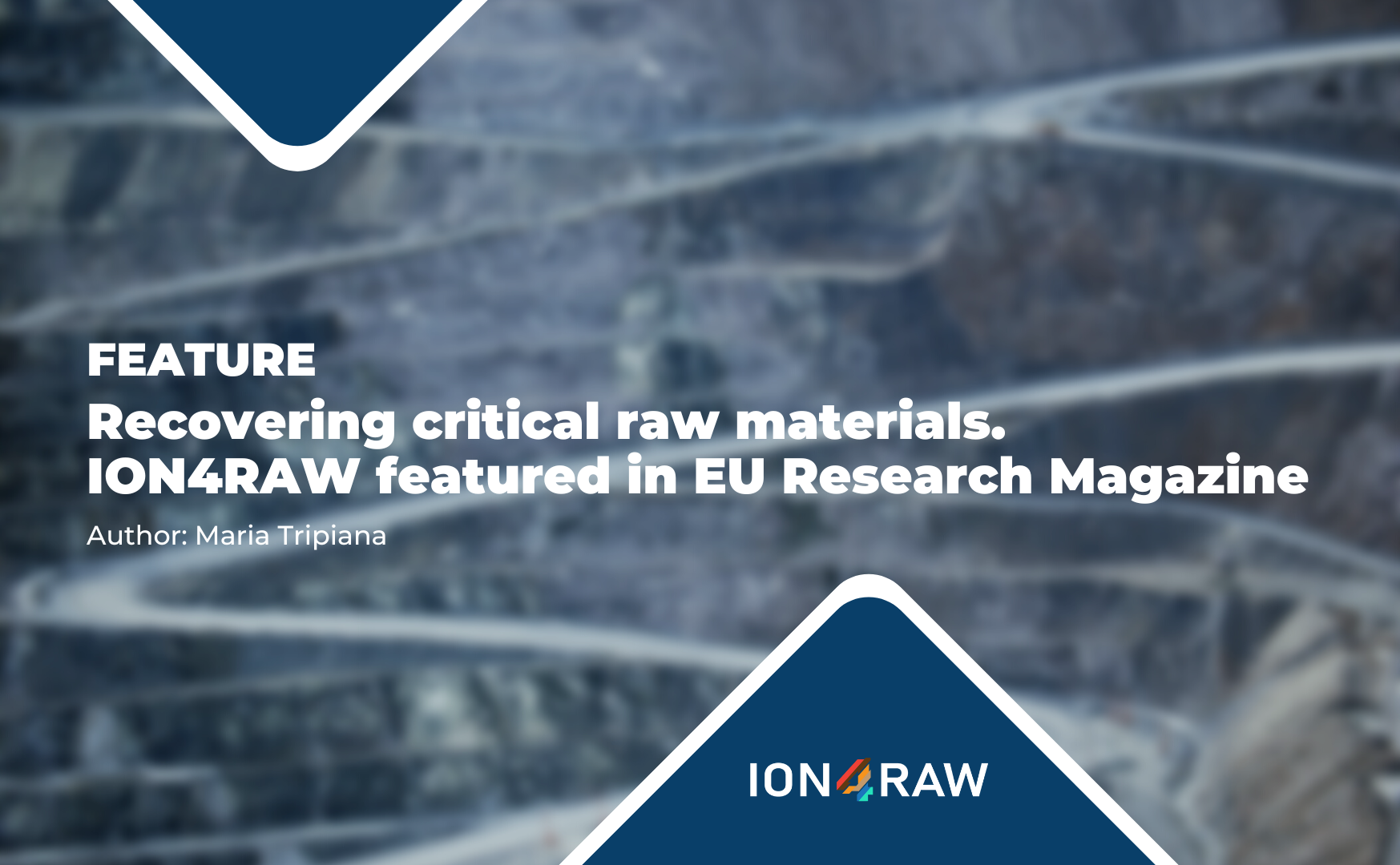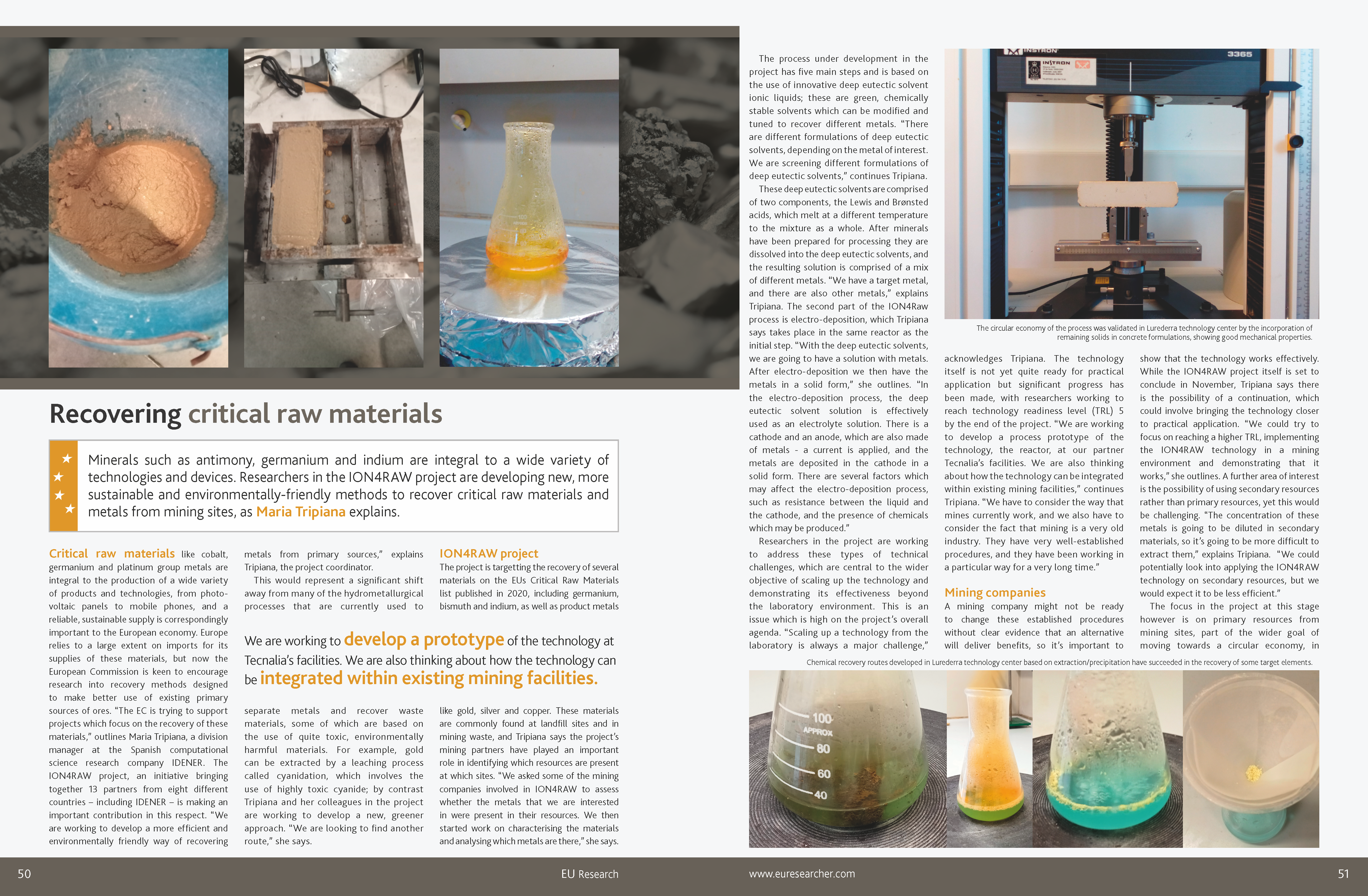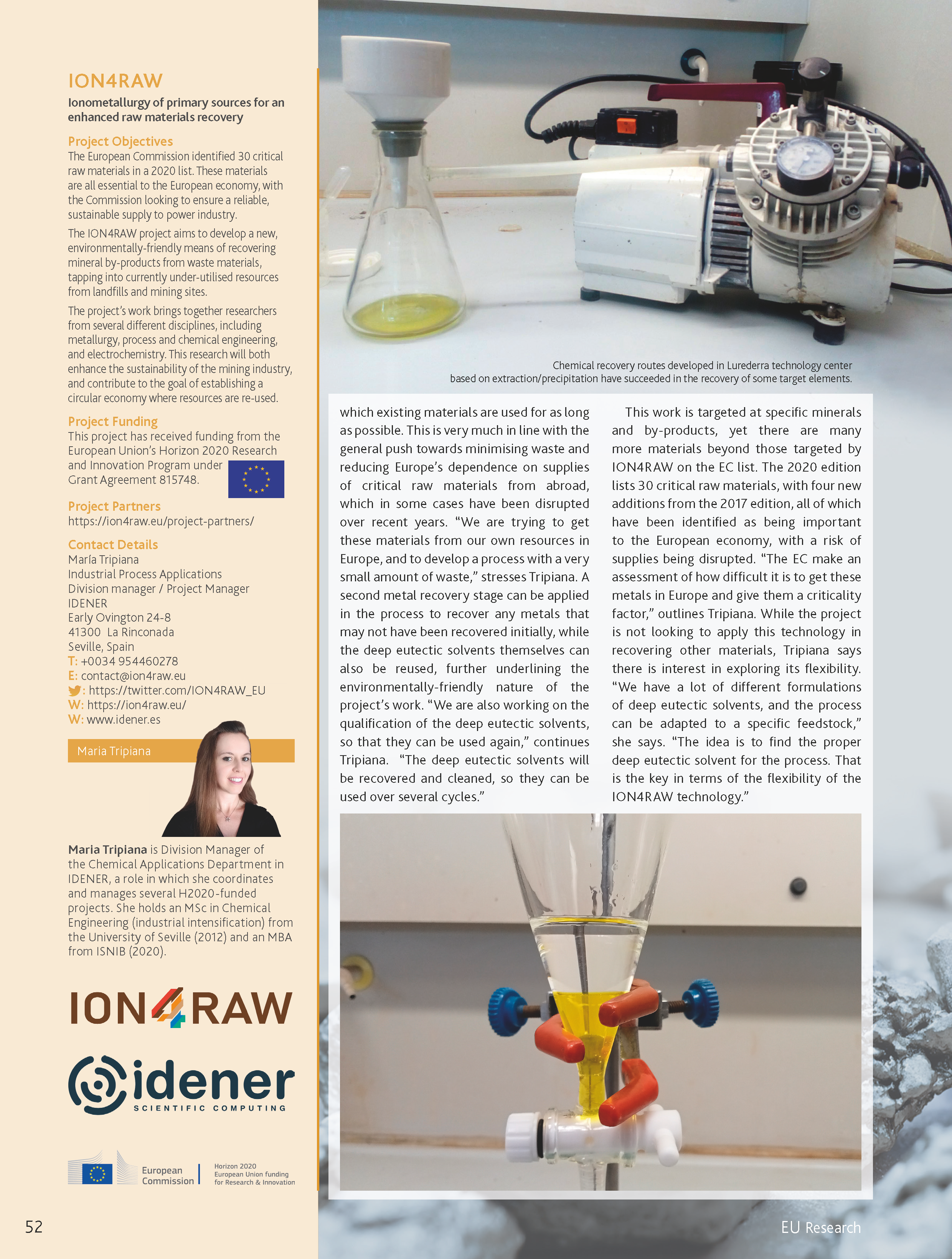Article written by Ioana Pristavu | PNO Innovation
On 30 November 2023, the ION4RAW project organised its final event – “Exploring Raw Material Insights and Industrial Prospects”, which marked a pivotal moment as it opened its exploitation event to the public. Introduced by Nader Akil (Operations manager at PNO Innovation Belgium) and Maria Tripiana Serrano (Division Manager in the Chemical department at IDENER and coordinator of the ION4RAW project), the event focused on two objectives. Firstly, it aimed to present the outcomes and the findings derived from the extensive research work carried out in the framework of the project. Secondly, the event facilitated in depth discussions on the perspectives and challenges associated with the application of Deep eutectic solvents (DES) in Metallurgy.
Following the coordinator’s introduction, which outlined the main objective of ION4RAW – to develop a new energy- and material-efficient mineral processing technology to recover by-products from primary sources by means of innovative Deep Eutectic Solvents (DES) ionic liquids and advanced electro-recovery using a one-reactor system, the event dived into the technical presentations providing a comprehensive overview of ionometallurgical process development, and an outline of the upscaled process.
Outcomes of the ION4RAW project
Leaching
Ainhoa Unzurrunzaga, researcher at TECNALIA (Spain) explained the main objective of collaborative research focused on investigating and fine tuning of the leaching, the separation and the purification processes to selectively recover targeted metals [silver (Ag), tellurium (Te), cobalt (Co), selenium (Se), indium (In), antimony (Sb) or bismuth (Bi)] using ionometallurgical processes. The process development was divided in specific tasks, from the mineralogical characterisation of the product materials, to assessing dissolution behaviour and kinetics in DES, establishing the solution speciation and effects on contaminants, and finally exploring various recovery methodologies.
Ainhoa outlined the main characteristics of DES and their advantages in comparison to conventional metallurgical processes, mentioning here reduced resources usage (energy, water), rapid preparation, availability of commercial precursors, electrochemical stability, and often lower toxicity. The various types of DES prepared by TECNALIA were based on choline chloride, mixing with different hydrogen bond donors (HBD). Their research involved nine materials (in the form of sulphide concentrates rich in Cu, Pb, Zn, Au and Ag) sourced from five different mines.
The research team at TECNALIA tested various DES with diverse chemistries and with diverse ores, focusing their presentation on the results obtained with concentrate extracted from Peru’s El Porvenir mine. With this ore, apart from different DES chemistries, researchers studied the addition of an additive and oxidant and the effect of the DES/solid ratio, amongst other parameters. Their findings revealed that the composition of DES, along with other parameters, significantly influence metal dissolution. Adding an oxidant and an additive improved the recovery rates, but simultaneously rendered the extraction process less selective. This conclusion opened further investigations into adjusting different parameters, such as the quantity of additives.
The DES-system displaying the most promising balance between recovery and target metals concentration, and showing low amount of main metals and suitability for subsequent electrowinning process, was later optimised. Under the most suitable operating conditions, researchers reported the following recovery rates: over 81% Ag and Te, 97% Bi, around 30% Sb and In.
Electrochemical recovery
During the ION4RAW exploitation event, Gøril Jahrsengene, Research Scientist at SINTEF (Norway), explained the electrowinning process using DES with dissolved metals post-leaching. The objective lay in determining the electrochemical stability window by identifying the range of electroactive species and redox behaviour occurring during the process. Researchers established the process limitations, mainly contingent on the oxidation state in DES, the presence of numerous metals with different concentrations, and the anode reaction, ensuring the solvent can be further recycled. Initial leaching experiments conducted at TECNALIA’s premises at small scale, followed by small scale electrolysis experiments conducted at SINTEF’s facilities at 60 °C, aimed to improve the electrochemistry. The results showed high concentrations of Ag ad Bi in the produced metal at this scale.
Upscaling experiments using 1 kg of concentrate (pre-leaching) aimed to obtain a Ag-Sb-Bi-Te alloy with small contribution of Cu, and no Pb, after electrowinning. Researchers improved the current efficiency from 30-40% to 50-55% while maintaining similar levels of metal depletion, by optimising the leaching conditions. The resulting alloy contained high amounts of Bi (~ 50-60%) in contrast to other metals (around 20% Ag, 5% Sb, 3% Te, 5-20% Cu), with minimal lead detected (2% Pb).
Looking at the opportunities window, researchers concluded that batch electrolysis using this specific concentrate could yield metal alloys with more than 80% of target elements (Ag, Sb, Bi, Te) along with traces of Cu. This significant improvement indicated the potential to produce metal alloys with relatively high concentrations of target metals from low initial concentrations present in metal sulphide ores. Further altering the current density, researchers produced additional alloys with higher Ag concentrations compared to Bi.
Moreover, different ores may yield different combinations of metals and DES concentrations after leaching. Understanding the electrochemical reactions for the relevant metals enables replication across other systems. Gøril outlined several optimisation scenarios with potential to produce single metal or simpler alloys, highlighting a pool of opportunities for future research initiatives.
Chemical recovery and residual solid valorisation
Cristina Salazar Castro, chemist at LUREDERRA (Spain) focused her presentation on the diverse input materials and their varying elemental compositions, particularly highlighting the outputs extracted from Peru’s El Porvenir mine. Cristina described the sequential chemical steps aimed at recovering various target metals like Ag, Te and Bi. The methodology involved initial precipitation steps, followed by a two-step separation process using additional sodium hydroxide (NaOH) to adjust the pH, and a subsequent precipitation step using thiosulfate. This phase facilitated a premature separation of various metals present in the solution, notably Te and Bi. Subsequent rounds of precipitation processes revealed presence of Bi compounds (oxides or hydroxides), but also traces of Cu and Cd. By describing this multi-step separation chemical process, Cristina emphasised the potential of this complementary route for recovering Ag, Te and Bi.
Additional to the chemical route, LUREDERRA’s focus extended beyond chemical recovery; researchers explored valorising the residual solids obtained post-filtration by repurposing them as concrete fillers. Tests conducted during the revalorisation processes confirmed that all particle ranges can be further exploited in the construction sector, without altering the curing concrete process.
To underscore ION4RAW’s commitment to sustainability and circularity, researchers at LUREDERRA and TU Freiberg have been optimising the solvent’s recyclability by removing the leached metals and reducing the amount of water in the DES. These conclusions align with ION4RAW’s overarching goals supporting sustainable mining solutions – recovery of valuable elements from secondary sources by chemical routes, solid waste valorisation and DES reuse.
Pilot plant advances and overview of the upscaled process
After introducing the specific objectives of the process upscaling, Laura Sanchez Cupido, researcher at TECNALIA, revisited the main stages of the ION4RAW process development, highlighting the progression from TRL 3 to TRL 5. During this last stage of the project, partners are designing and building the pilot plant, working on the optimisation and validation of leaching and electrochemical recovery process, alongside products characterisation.
The innovative aspect of the ION4RAW project lies in its objective to design a process using one main reactor that could cater to a diversity of streams and could perform both the leaching and the electrowinning processes. Initial pilot-scale leaching tests processed seven batches (24 kg) of the concentrate extracted from Peru’s El Porvenir mine in 180 L of leaching media. Progress in parameter optimisation ensured controlled temperature (around 45°C) and a filtration time up to 15-20 minutes; optimisation of other parameters in the pilot plant set up allowed also a significant reduction of oxidant usage without compromising efficiency. Promising initial results showed satisfactory recovery rates for Ag, Bi and Te.
Anticipating the electrowinning tests, joint efforts of TECNALIA and SINTEF focused firstly on the leachates’ characterisation to identify electrodeposition potentials and current densities. Initial electrowinning trials reported deposits of Ag, Bi, Te, Sb and Cu in ranges similar to the lab scale. Researchers’ work is now focused primarily on optimising the conditions to improve the recovery rates, with a final objective to produce 100 L leachate and electrowinning of target metals at optimum conditions.
Finally, Laura provided an overview of the ION4RAW process outlining the advantages, but also the challenges that research still needs to address to optimise DES application in extractive metallurgy. Pilot scale trials showed various benefits of using DES over conventional processes, including low temperature atmospheric pressure, milder leaching medium for sulphide ores, compatibility with existing components and chemicals, as well as acceptable viscosity levels which allow the use of same equipment and same processing times and losses as when aqueous media are used. Looking at improvement opportunities, certain challenges persist, notably the need to reduce the oxidant and additive quantities and improve the partial selectivity, which is highly dependent on the composition of the raw material.
Assessment of by-product potential in Europe – contribution to the Raw Materials Information System
Last two presentations from the ION4RAW project highlighted activities and results complementary to the process development. Pauline Moreau, project manager at BRGM, briefly introduced the by-product potential evaluation, with a focus on the assessment and inventory of target by-product distribution in existing and currently unexploited resources from Europe. Placed during the initial phases of the project, in charge of the extensive characterisation of the target by-products, this work package has been crucial to the following phases of the project. This extensive sample characterisation, based on multiscale analysis, covered samples from five different ores: Cononish Gold Mine (Scotland), Cobre Las Cruces and El Valle Boinas (Spain), El Porvenir and Cerro Lindo (Peru).
To compile geographically-based data on the occurrence and potential of by-products in Europe, researchers used the ProMine database, classifying data in 17 metallogenic families, described with specific details like location, deposit or economic information. From over 8000 occurrences, only 1400 contained the targeted by-products. To address database heterogeneity and/or information gaps, BRGM employed the DataBase Querying (DBQ) approach, predictively assessing these elements and identifying several prospecting areas for the project’s targeted by-products. According to this meticulous analysis, reports revealed, as an example, that the epithermal deposit type contains six of the by-products targeted by ION4RAW: Sb, Bi, Te, Ge, Se, In. During the next steps, researchers generated and combined the distribution maps for all these elements, and obtained the epithermal signature, determining the location of such favourable sites.
This detailed inventory provides insights for economic assessment of potential resources and identifies mining sites for the selective by-product potential in Europe. Leveraging historical analytical data and new geological and geo-metallurgical data, the ION4RAW project developed the Decision Support System, an online tool that provides access to information on by-product potential, concentration/tonnage, endowment estimates, and metallurgical techniques.
The outcomes of the research work carried out by BRGM in the framework of the ION4RAW project can be found on the ION4RAW website, but also on the European Commission’s Raw Materials Information System (RMIS), within the public deliverable 2.1, as well as the scientific article “Predictive assessment of metallogenic signature using DataBase Queying (DBQ) method: A European application”.
Sustainability assessment and exploitation
Mathilde Legay from LGI highlighted the significance of recovering by-products both economically and environmentally. She offered a concise overview of the Te, Ag and Bi markets, focusing on their applications, resource availability, demand, and economic projections.
Based on the ION4RAW process at lab scale, Mathilde presented the results of the life cycle assessment (LCA) which listed the environmental burdens, as well as the methodology used strictly on the Cu ore from El Porvenir mine. The results of the LCA for the ION4RAW process at laboratory scale, specifically in reference to the recovery of 1 kg of by-products, indicate environmental challenges. LGI representative emphasised the need for further optimisation of the ION4RAW process, particularly in improving the by-products recoverability and reducing oxidant to mitigate freshwater ecotoxicity and eutrophication.
In discussing potential routes to improve the environmental and economic aspects, Mathilde proposed industrial symbiosis as a viable opportunity to recover tailings from mines, and metals from anode slimes, slags, and flue dust.
Applications of Deep Eutectic Solvents in Metallurgy – Perspectives and Challenges session
The second part of the event gathered esteemed speakers from the research and academic backgrounds, not only with proven expertise in DES, but also with practical examples of successful EU-funded projects. This session was inaugurated by Univ.Prof.in Dipl.-Ing. Dr.in techn. Katharina Schröder, who presented “Critical raw material recovery: TU Wien’s approach in the PLATIRUS project”. Officially declared a success story by the European Commission in 2022, PLATIRUS developed a business plan based on its novel flowsheet for the recovery of platinum group metals (PGMs) from secondary resources, such as spent autocatalysts. These PGMs recovered from waste, using a combination of innovative technologies (such as microwave assisted leaching, ionic liquid-based liquid-liquid extraction and gas-diffusion electrocrystallisation), can be used to manufacture new autocatalysts with similar or better performance than commercial ones. TU Wien’s role in the project was to develop a leaching process with alternative solvents. The research team investigated various solvents, like ionic liquids (IL), DES, supercritical fluids. Finally, the team at TU Wien pursued further research on PGM leaching with choline-based DES [More information about the results of the research can be found in open access in the scientific paper “Benign recovery of platinum group metals from spent automotive catalysts using choline-based deep eutectic solvents”], Liquid-Liquid separation using DES and IL combined processes, and Solid-Liquid separation. Within the latter process, researchers investigated further the development of selective sorbent materials on solid phase for the recovery of Pt, Pd and Rh under relatively mild conditions and the development of a strategy to separate these materials in an aqueous solution, with the final target to remove all interfering elements and simultaneously reduce the use of IL. The most benign leaching route used a mix of hydrochloric acid (HCl) and hydrogen peroxide (H2O2), working at 65°C for approx. 3 hours. The Pd-rich leachate was later loaded on the support material developed in the project, under various parameters, with the aim to enhance the retention of target elements. Finally, two consecutive striping steps allowed initially to remove the interfering metals (Al in large quantities), and consequently to separate Pd and Pt from the solid material, to obtain high purities.
The event featured a second success story of: CROCODILE – showcasing innovative metallurgical systems based on advanced technologies for the recovery of cobalt (Co) and the production of Co metal and upstream products from a wide variety of secondary and primary European resources. Introduced by Dr. Lourdes Yurramendi, experienced chemist at TECNALIA, the presentation focused on the chemical treatment, phase that facilitated the pilot scale-up. At lab scale, CROCODILE flowsheet involved the black mass treatment using DES leaching, liquid/liquid extraction using solvometallurgy, and finally electrowinning to achieve the final metallic Co. Dr Yurramendi underlined CROCODILE’s success in employing advanced technologies to optimise Co recovery and metal production, while enhancing sustainability through comprehensive LCA and LCC assessments and efficient resource utilisation:
- DES recycling was achieved for up to ten cycles
- Low operation temperatures (up to 55°C) while maintaining high stability
- Viscosity concerns were addressed by using a DES-based leaching system mixed with water
Based on the breakdown of the operating expenditure (OPEX) at lab scale, 90% of the expenses were allocated to raw materials, with 7% attributed to energy consumption. Additionally, 36% of the raw materials were released to the DES leaching process. During the validation of the pilot at TRL7, a total of 1000 kg black mass containing 25% Co content underwent testing. The daily production yielded over 6 kg Co, with a purity exceeding 97%. Considering the comparatively slower development pace of the recycling industry in contrast to the European battery sector, the DES-based CROCODILE technology stands as a promising route. It offers an opportunity for further optimisation, positioning itself as an encouraging recycling technology on the European market.
Dr Cristina Pozo-Gonzalo, Senior Research Fellow at Carboquímica Institute (Spain) and Associate Editor for Royal Society of Chemistry (RSC) Sustainability, presented a balanced perspective on the advantages and challenges on using DES for metal recovery, comparing with existing recovery methodologies, such as pyrometallurgy and hydrometallurgy. Dr. Pozo-Gonzalo outlined the current state-of-the-art (SoA) while providing an overview of the three main phases: a. extraction – usually involving a combination of hydro and solvometallurgy, as well as pyrometallurgy, b. separation – including liquid-liquid extraction, membranes, resins, c. recovery depending on the chemistry of the metals targeted for recovery – usually comprising precipitation, calcination or electrowinning techniques.
Focusing on deep eutectic systems in the solvometallurgy context, Dr. Pozo-Gonzalo highlighted the following general advantages: cost-efficiency, suitability for specific purposes, straightforward preparation (100% atom efficiency), upscaling opportunities. The two key parameters establishing the leaching efficiency are acidity and metal complexation (nature and stability). Using the example of Co recovery, the researcher presented results achieved by utilising a mixture of three different choline chlorides: Ethylene Glycol, Urea and Citric acid – a process with efficiency similar to hydrometallurgy but following a green recovery path. Highlighting good recovery results and selective dissolution options, Dr. Pozo-Gonzalo underlined the necessity to guide research’s interest towards improving specific aspects: the nature and ratio of the hydrogen bond donor (HBD) and hydrogen bond acceptor (HBA), viscosity, reducing ability and experimental factors. Finally, Dr. Pozo-Gonzalo referenced a case study lead in collaboration with TECNALIA, that revealed promising results for Co recovery (notably 78% efficiency with a stable Co deposition process) by electrowinning using DES.
Conclusions emphasised the criticality of tailoring DES composition and working conditions (thermal, chemical, electrochemical) for each metal. Emphasising early stages of the research on DES, she recommended continuous scientific investigation to gain understanding on the structure, the additives’ effect and DES degradation, with the aim to work towards sustainability.
Prof. Dr. Gero Frisch, from the TU Bergakademie Freiberg, concluded the workshop with a clear message: a return to fundamental research is essential to precisely understand DES applicability at industrial scale. He highlighted examples of success stories in electroplating but also from the raw materials sector, citing positive results with the leaching of flue dust, yielding a solution rich in In and Sn, after subsequent precipitation steps. Notably, he emphasised the key strengths of Il/DES, referring here to their capacity for tailoring speciation and controlling chemical, such as in the case of Cu.
Within the ION4RAW project, TU Freiberg research team conducted tests on the Scotgold mine concentrate using different media and exploring solubility curves and efficiency of DES, particularly in comparison to aqueous solutions; this revealed promising results and, in some cases, even better selectivity.
DES have been research subject for almost two decades, yet certain challenges such as conductivity, viscosity, price, ecotoxicity and high solubility for metal salts still persist. While acknowledging current capabilities and research areas prepared to comprehensively explore and provide engineering support for upscaling projects, Prof. Frisch reiterated the cruciality of allocating more research on DES before we reach the irrefutable conclusion that this solution is no longer viable on an industrial scale. He advocated for collaboration with industry, not solely for upscaling purposes, but also to leverage their expertise in understanding fundamentals, promoting a sustainable long-term approach.
Asked about the limiting factors of DES that seem to discourage industry from pursuing upscaling, experts provided insightful answers, referring to the necessity to facilitate industry driven research, aligned with ESG standards. Funding directed towards technology foundations and promotion of ongoing knowledge exchange between research and industry were also highlighted as essential. While acknowledging criticisms of DES, experts underlined their proven efficiency over time, stressing the necessity for continued research and knowledge exchange between sectors for DES to mature into a viable industrial solution.
The event gathered online over 45 participants, with attendance predominantly from the research background (over 70%), followed by consultancy (25%), and only 2,2% from industry, respectively non-profit sectors.

